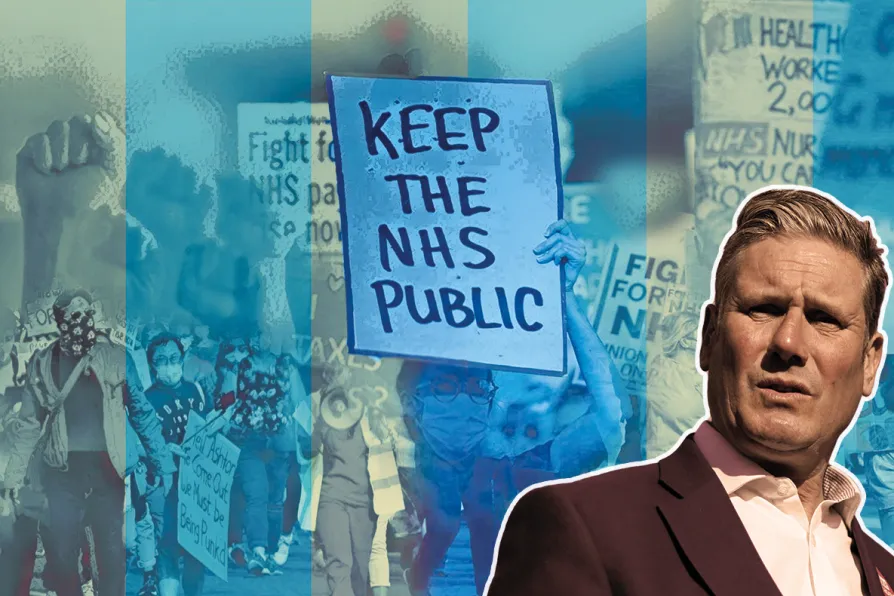Mass mobilisations are forcing governments to seriously consider imposing sanctions and severing ties — even in places like Australia and the Netherlands — despite continued arms shipments to Israel’s war machine, writes RAMZY BAROUD


SOME people may be startled that Labour leader Keir Starmer is using Tory rhetoric to talk about the NHS. The key word is “reform” and phrases are used like “get real about reform.” These are euphemisms for opening up the NHS to the private sector.
For instance, it could mean insurance or co-payments — and the US model has meant that healthcare is the biggest cause of bankruptcy in that country. Pro-Starmer commentators have been anxious to reassure us all by claiming that what Starmer means by “reform” has no resemblance to Tory “reform.” But in reality, it means the same thing.
Starmer is using Tory rhetoric for a reason. And for the avoidance of doubt, he has placed his latest article calling for “reform” in the leading Tory newspaper, the Daily Telegraph.

Every Starmer boast about removing asylum-seekers probably wins Reform another seat while Labour loses more voters to Lib Dems, Greens and nationalists than to the far right — the disaster facing Labour is the leadership’s fault, writes DIANE ABBOTT MP

DIANE ABBOTT explodes the anti-migrant myths perpetrated by cynical politicians and an irresponsible mass media

Our Foreign Secretary now condemns Israel in the Commons, yet Britain still supplies weapons and intelligence for its bombing campaigns — as the horror reaches perhaps the final stage, action must finally replace words, writes DIANE ABBOTT MP

The BBC and OBR claim that failing to cut disability benefits could ‘destabilise the economy’ while ignoring the spendthrift approach to tens of billions on military spending that really spirals out of control, argues DIANE ABBOTT MP













